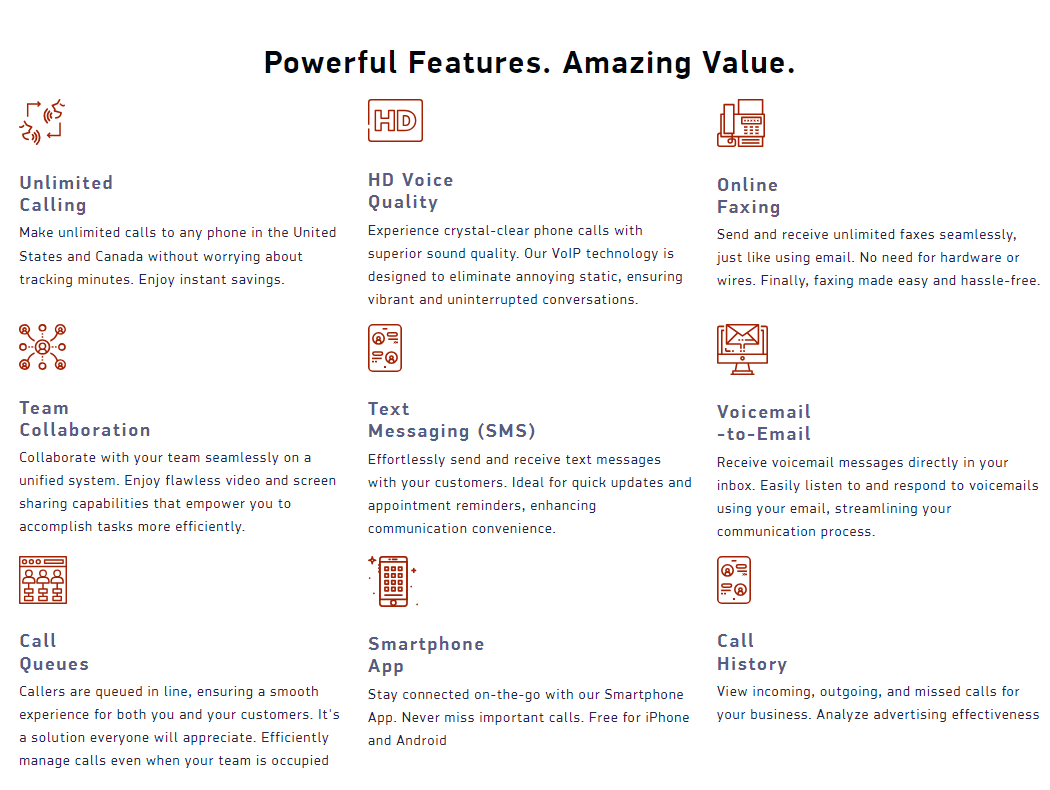In this blog entry, the expert New York area cloud VoIP phone system installation experts here at QTech will detail the most important things to know about cloud phone systems, how they work, and the benefits of their unique features.
What exactly are cloud phone systems?
Cloud phone systems, also known as cloud PBX, virtual PBX, hosted PBX, and hosted phone systems, are a form of VoIP phone system that can be accessed through a cloud-based IP network. This phone system is fully delivered through the internet, and managed off-site, which drastically reduces upfront costs for communications hardware and infrastructure. It’s very easy to set up and deploy cloud phone systems, lowering your company’s IT overhead costs. Cloud phone services can also be purchased from specific service providers on a subscription based level.
In a nutshell, when you have your business phone system stored in the cloud, calls are made and received with IP phones, mobile phones, computers, or other devices, and voice traffic is transmitted over internet connections which is then connected to data centers in the cloud.
What are the main benefits of cloud phone systems?
- Cost-savings for upfront equipment investment and regular maintenance costs for traditional analog systems
- Easily scale up by purchasing new licenses per user
- More phone system and budget predictability
- Total scalability that allows you to match your phone system to your business growth by simply adding new users, as opposed to having to purchase new hardware
- Limited maintenance needs. Cloud phone systems are managed by phone service providers off site, who take the responsibility of system updates.
- Easy system administration with an internet connection, through an easy-to-operate web interface
- Unify management and employees from different areas, allowing them all to utilize the same features. This creates business continuity and synergy.
- Many cloud phone systems have softphone apps that allow desktops and smartphones to operate as office extension lines that make and receive calls
- Cloud phone systems allow you to unify all of your communications channels toa single point of access
- Easily continue a phone call when leaving your desk by instantly forwarding your call to your mobile phone
What are some of the great feature benefits of cloud phone systems?
- Call forwarding options with different programmed conditions like “always,” “no answer,” or “always answer,” as well as easy call forwarding and voicemail management
- AutoCLIP which automatically connects call-backs from previously connected numbers to your direct line
- SIP forking which routes a single call to multiple endpoints. You can ring many terminals at the same time, and take that same call from any of those devices
- Ring groups allow you to sequentially or simultaneously ring all phones within a pre-programmed group according to your strategic needs
- Custom ringtones for different inbound lines
- Blocklists and Allowlists
- Interactive Voice Response (IVR) automated systems that interact with callers using pre-recorded messages, touch-tone keys, or voice commands
- Direct Inward Dialing (DID) provides a particular phone number to you from a chosen country or city that is then forwarded to your company PBX system, allowing you to maintain a “local” business presence around the world without needing multiple physical locations
- Automatic voicemail to email, allowing you to listen to voice messages from your smartphone or computer
- Easy and customizable conferencing features
What are some business types that can greatly benefit from cloud phone systems?
- Businesses that have low IT staff
- Businesses that want to avoid PBX equipment maintenance
- Seasonal businesses with different communications requirements
- Businesses with multiple locations
- Quickly growing start-ups with unclear future needs
- Businesses with lots of remote employees and teleworkers
- Businesses With non traditional office space
Ask yourself the following questions when considering switching to a cloud-based phone system:
- How many employees will work for your enterprise?
- Do you have complicated call management needs?
- What would the cost and procedure be to startup your commercial communications traditionally, or through a cloud-based system?
- Can you use your existing devices with new cloud systems?
- Do you have usage fees in addition to your normal monthly rate?
- Do you already use other cloud-based services, and can they be integrated into your cloud phone system?



